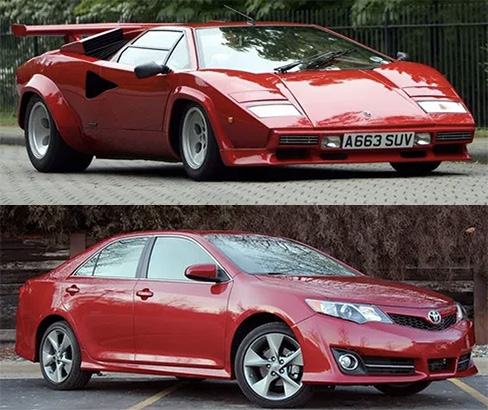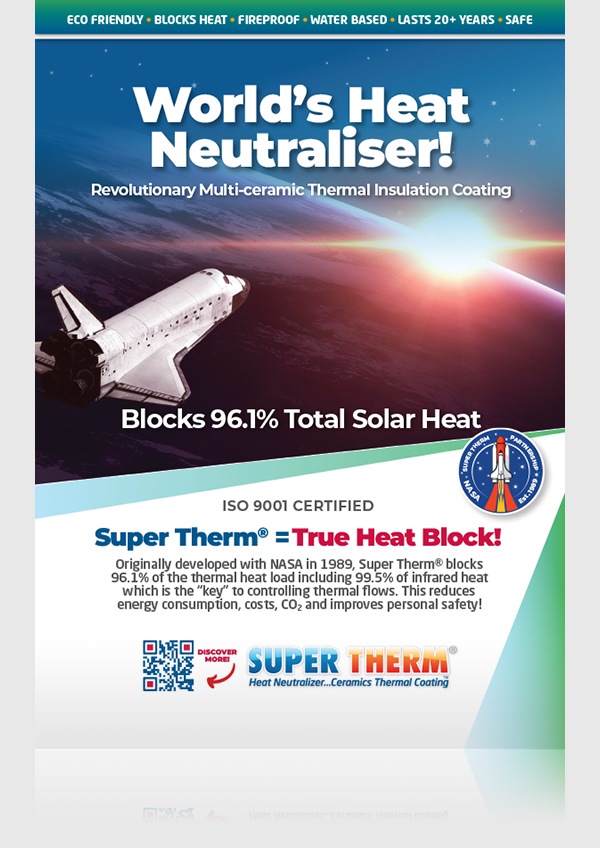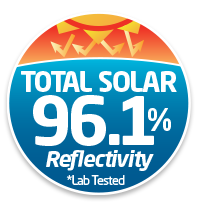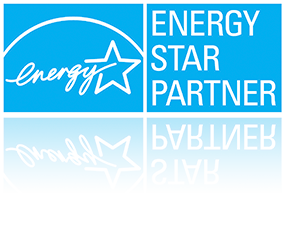Does Insulating Paint Work? Not for Us!

This really is a loose blog post again trying to discredit insulation paints base on the wrong information, lack of knowledge and understanding. Typically like most of these articles there’s a combination of ‘factoids’ off other anti-heat reflective paint articles that perpetuate the same fallacies. What’s becoming very common place is the lack of consultation with manufacturers on the ‘testing’. Clearly education is the missing piece of the puzzle. We’re happy to work with anyone who’s actually interested in true results and not looking for. There’s a condition called Cognitive Dissonance. When people hold very strong beliefs and they are presented with evidence that works against against that belief, the new evidence cannot be accepted. Therefore they look for evidence to prove their belief even though the facts are in plain sight. Enjoy!
https://simplegreenliving.com/7152/insulating-paint/
Updated: Monday, April 25, 2016
Insulating paint, also called ceramic insulation paint, is said to add insulation to the exterior walls of a house. You just paint it on! But does it work? How much insulation does it really add?
Super Therm® is an energy saving multi-ceramic solar heat block insulation coating.
Those are the questions at our adobe house as we contemplate the aged stucco exterior which definitely needs improvement. My husband Kelly brought up the idea of insulating paint, so I volunteered to do some research. Our house is a 1940s house, a fairly typical New Mexico adobe home, which we bought half a year ago.
Super Therm® would be perfect for this adobe home.
People often think that an adobe house would be warm in winter and cool in summer. That’s true to a degree. Adobe provides thermal mass and we’d like to make the house better insulated. Those are different things.
Insulating paint can be bought ready to use or created by combining an insulating paint additive with the paint you are going to use. There are several brands of additive and of paint.
Important to note a big difference between ready to apply and additives. Super Therm® contains 54% solid by volume…we’re aware that other additive paints may only add 3% solids to base white paint!
Super Therm® is a specific formulation of 4 ceramics designed to block visual heat, UV heat, Infrared heat and stop heat load. Combined with urethanes and an acrylic binders to provide a long lasting, industrial strength solar heat block coating. Super Therm Tech Sheet.
Simply not possible to ‘combining an insulating paint additive with the paint you are going to use’ and have it work. Super Therm® blocks most of the total solar heat…that’s not by accident…its by formulated design with proven and tested results.
Insulating Paint Reviews
I do love digging into the research for these articles. As a former librarian, I’ve got a nose for it. This turned out to be a controversial topic.
The Scientific American has a short article summarizing pros and cons. It appears that the paint works by reflecting sun off the roof or wall, so it only helps when the sun is shining on that part of a building. It seems to become less effective with time.
Firstly we’ve debunked the Scientific American article. This article does recommend Super Therm® however it is manufactured by Superior Products International II, Inc., not Eagle Coatings who is the Canadian Distributor. While Super Therm® is tested to block most of total solar heat this includes 367 to 4 BTU of infrared conductive heat. So even when the sun’s not shining yet it’s hot, that solar infrared heat is being blocked. This is a major point of difference to our competitor products. White paint only reflects two elements of heat (UV and Visual Light) and does not reflect Infrared heat…Super Therm® does!
A Japanese study found of 21 heat reflective paints showed even the most reflective paint lost it’s solar reflectance by 44% within 1.5 years. However when Super Therm® was tested in comparison to other paints by the Energy Star Program, Super Therm’s loss of solar reflectance in 3 years was only 1% compared with minimum of 30-90% by competitors.
I found a scathing review of insulating paint, with the title Insulating Paint Merchants Dupe Gullible Homeowners. The writer, who has scientific credentials, says near the end of the article, “Guess what — paint is a lousy insulator. ” When I read the page, there were 75 comments, many of them lengthy discussions. The article was written in 2009 and the comments go on for several years. Worth wading through.
We’ve seen all the hype, imitators and deception in the marketplace as well. One of the worst articles for this is on Wikipedia which we highlight all the wrong facts about insulation coatings and paints along with misinformation. In fact the President of Superior Products International II, Inc. and inventor of Super Therm®, J.E. Pritchett made a lengthy response to the article. All we can say is don’t put our quality Super Therm® coating in with the imitators…we’re the coating being imitated! J.E. stated: “The lab said they got the product from someone?? who said it would work but the lab never did their due diligence to call the manufacturer to make sure they had the correct product.“
• Thermophysical Properties Research Laboratory – TPRL 1780
• Florida Energy Office
• Bombardier Transportation and Engineering Group. Testing performed by VTEC Laboratory, Inc. and National Certified Testing Laboratories – ASTM C-236 Guarded Hot Box Test
• Division of Construction Engineering and Management, Purdue University – Super Therm (pdf)
Here is a case study by the same writer. A man who was a distributor for an insulating product had his new house in Massachusetts built with no regular insulation at all, just insulating paint, and it did not turn out at all well.
Yes this ‘case study’ is debunked here >
Here’s another undated pro-and-con article that ultimately ends up quite dubious about the products.
Website link doesn’t work
Totally in favor of these coatings is this article on television home building expert Bob Vila’s site. I did note that it quotes the developer of one of the coatings as an authority, and also that it wasn’t written by Vilas himself.
Thank you a positive comment on Super Therm® and J.E. Pritchett. It is on the bobvila.com website (pdf extended version). Wasn’t written by Bob means what…it’s not true? Enjoy the video of Bob talking about Super Therm®.
Washington State University has a 2007 PDF summarizing research on the Insuladd brand of additive. See pages 5 and 6 in particular, which is their analysis. Here’s a small part of it, from page 6.
The benefit of this product over time on exterior walls in a real environment, while unknown, very likely may be small. Laboratory measurements on freshly painted surfaces in an indoor, protected environment are not adequate to predict how the product will perform over time in a real application and should be considered skeptically.

The link is broken, here’s another option. Comparing Super Therm® to our competitors is like comparing a Ferrari to a Camry or landline to a mobile, especially from 2007 to the present day. Blanket claims that ‘all insulation paints’ are the same are just ridiculous. That’s like saying all cars are the same. They’re not! The top speed of a Camry is 180-210km/h. A Ferrari max speed it 340km/h…are all cars and their performance the same? Super Therm® is the Ferrari. Even the first Tesla was manufactured in 2008 shows how old these references are in these articles.
About the time I had gone through all these, I was getting dubious, but I did notice that they were all older articles. I was glad to find an article written on a British site just a few weeks ago. Does Insulation Paint Work? is a good overview. Here is a bit from their section on independent studies of these paints:
Independent studies tend to be lacking on product pages for thermal insulation paint. Instead you might find Mrs. Smith saying “What a wonderful product, I’m so warm now”. “Scientific studies show” is also a go-to phrase used by the insulating paint market.
There’s plenty of older articles. Here’s a range we’ve addressed. Super Therm® was invented in 1989 so that article is 10 years out on fact 1. “Insulating paint is said to consist of honeycomb or ceramic hollow balls supposedly invented by NASA, which don’t just slow down the heat transfer through the walls but actually stops it all together!” While we have to go over this again and again, Super Therm has 4 specialised ceramics…not honeycomb or ceramic hollow balls but micron sized ceramics that block and reflect the heat back to the atmosphere. J.E. and SPI did work with NASA and Super Therm® was tested. If the premise of this article isn’t correct in the first paragraph…well that’s the foundation of misinformation.
• NASA: Only ceramic solar heat block coating that was developed with NASA
• FEO: Tested and verified by the Florida Energy Office at 3 locations that proved it created 20-50% energy savings
• Laboratories: Independently Lab tested in Japan, Russia and USA
Well, I thought that would be that. By this point, I wasn’t impressed.
But my independent husband came up with a new idea. He bought a container of Insuladd and some cement pavers and he ran some tests. He wrote a long and detailed article about his tests here. And that’s that. No insulating paint for us, not after his tests. It just didn’t make a difference but ordinary insulation did.
It’s great the ‘independent husband’ did his testing. If that’s the case he should have purchase Insuladd, Hy-Tech, Therma-Guard and Super Therm (as specified in Scientific American), contacted the manufacturers of these products to ensure the testing is all true and correct. So due to the lack of genuine knowledge and understanding of solar heat block coatings and insulation paints in this blog they went and brought the Camry to test it based on performance of all cars…yeah it didn’t reach 340km so must mean all cars are average. Our competitor hasn’t declared the percentage of volume to solid but we know Super Therm is 60% solid by volume. Next time try Super Therm®, the Ferrari if you want performance and get the facts right.



























